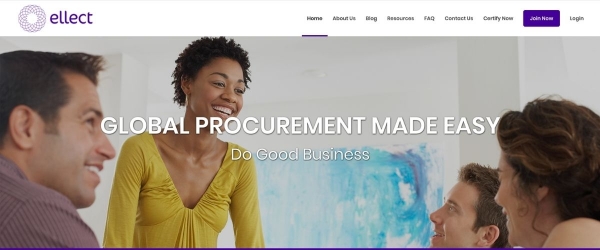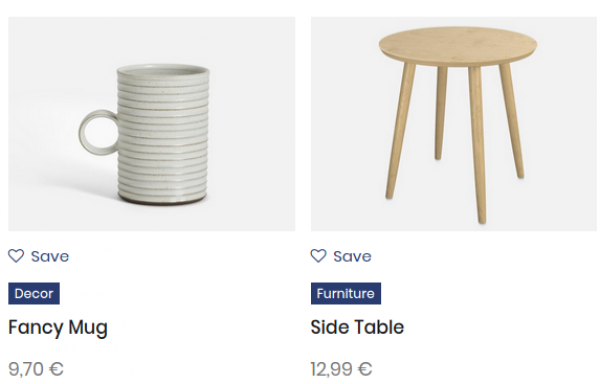What is an online marketplace? Here are the definition and examples of online marketplaces that you need to know in 2022.
Build your online marketplace today!
Benefit from a 7-day free trial, with no obligation or payment card
Are you curious to find out what a marketplace is?
Online marketplaces are growing in popularity, but many people still have questions about what they are.
By the end of this article, you’ll be able to answer: What is an online marketplace? Plus, you’ll be armed with some examples of different online marketplaces to support your understanding.
This beginner’s guide will provide expert insights and share everything you need to know. Ready to dive in? Let’s go.

Source: Pexels
How does an online marketplace work?
Let’s begin with the basics: What is an online marketplace? And what are some marketplace examples?
Definition of an online marketplace
An online marketplace is a digital middleman for sellers and buyers. Forbes explains that it’s “a website or app that facilitates shopping from many different sources. The operator of the marketplace does not own any inventory, their business is to present other people’s inventory to a user and facilitate a transaction.”
Taking multiple forms, an online marketplace can be e-commerce or product, meaning it facilitates the buying and selling of physical or digital goods. There are also rental marketplaces and service marketplaces.
Peer-to-peer online marketplaces can work as B2B or B2C. It’s all about choosing a strategic niche for your marketplace that connects buyers to sellers.
Now that you know what an online marketplace means, you’re probably wondering: how do they make money?
How do online marketplaces make money?
If online marketplace platforms don’t sell goods themselves, how do they earn revenue? Well, there are quite a few ways.
Typically, the owner makes money based on commissions of sales conducted via their marketplace. However, there are several other options depending on the platform’s goals.
The best financial models for marketplaces include:
- Commission, or taking a percentage of each transaction
- Membership or subscription fees, like charging a recurring rate to participate.
- Listing fees, or charging sellers to advertise their products or shop.
- Lead funnel fees include charging sellers for customer information.
- Freemium means locking certain platform features to paid plans.
- Featured listings and ads, or charging a premium for extra exposure.
All of these marketplace models have the potential to make significant money for owners. Some even use a combination of these methods, like a few of the marketplace examples we’re about to cover next.
Examples of online marketplaces
Let’s look at some online marketplace examples to better understand what one is.
One popular example of a rental and services marketplace is Airbnb. It launched in 2008 and is now worth more than $18B. When a homeowner (seller) lists their property, a renter (buyer) can pay to rent it. Airbnb makes money through service fees, a commission, for different transactions conducted on their platform.
Another in-demand marketplace is Etsy which exploded in growth last year. In 2020, Etsy doubled their annual revenue, a significant feat since the company went public in 2015. This marketplace connects local craftsmen and artists to shoppers.
Our customer, Ellect, is a niche digital marketplace that connects microenterprises with corporate and government procurement buyers. Their founder is on a mission to create gender balance and equality.

Another creative example of an online marketplace is our customer, Clik Trip, a curated photography marketplace. It connects customers to local photographers and high-quality photo experiences around the world.

There are many ways to build a winning marketplace no matter what niche or industry you choose. The sky's the limit as more consumers migrate online and are looking for marketplaces.
So what does the future of online marketplaces look like? That’s coming up.
What is the future of online marketplaces?
In short, the future of online marketplaces looks bright. Online marketplaces aren’t just growing year after year, they’re becoming a preferred channel for consumers and sellers.
Forrester predicts that 17% of all B2B transactions will be through e-commerce and marketplaces by 2023. They believed the COVID-19 pandemic would accelerate this prediction and encourage even more online shopping - and they were right.
This McKinsey Quarterly report valides that claim. It describes how quickly e-commerce replaced physical marketplaces and how it experienced 10 years of growth in just three months.
Another report states that in 2020, the top 50 marketplaces in the US grew their sales 40% in one year, Amazon included.
To put the future of online marketplaces into an example, let’s look at Amazon. It’s such a large company, many wonder “Is Amazon an online marketplace?”
In one word, yes.
It’s one of the few trillion-dollar companies in the world. It operates on commissions and even subscription models from sellers, like these two selling plans within the United States.
Amazon also generates revenue other ways, but it is by definition, a marketplace.
It established strong marketplace trust worldwide and has become the most valuable company in the world. Amazon doesn’t show any signs of stopping and people want a piece of the pie.
People Googling the term “online marketplace” has been steadily increasing over the past five years and new marketplaces are emerging daily.
If the future of online marketplaces is so positive, how do you create one yourself? You’re about to learn.
How do you create an online marketplace?
Want to create your own online marketplace? Here’s how you can apply your newfound knowledge and create a profitable platform.
Build a marketplace
Build it and they will come. The first option is building your own online marketplace. However, a custom-built website with marketplace functionality runs about $20,000, plus the cost of every update moving forward.
Want a better, more financially-friendly option? Use a software like Kreezalid and get all the must-have marketplace features in one place. Our intuitive drag and drop tool enables users to build sites without any coding. Plus, it’s fast. You’ll have it up and running in an hour.

Get sellers and buyers to your marketplace
Once you build an awesome online marketplace, you must attract both sellers and buyers to use the platform.
It’s a matter of solving the chicken or egg problem. Do you get more sellers or buyers first? If you focus on one, you risk losing the other.
The solution is simple. Make your marketplace invite only to start out. That way, you can regulate how many sellers and buyers you have to maintain a perfect balance of the two sides.
Next, generate buzz with a marketplace marketing strategy that works great.
Target people who already use similar marketplaces through digital ads on platforms like Facebook and Instagram. Also, try networking locally through meetups, events, and other groups.
Over to you!
There you have it. If you’ve ever wondered, “What is an online marketplace?”, now you know.
In the end, there are infinite niches that you can explore to create your own definition of an online marketplace. Whether it’s travel like Airbnb, driving like Uber, photography like Clik Trip, or a totally new idea, you have the power to build a profitable platform.
To launch your dream marketplace, it helps to use a powerful and easy-to-use marketplace platform. Get your marketplace off the ground by trying Kreezalid for 14 days FREE. Click here to sign up!

